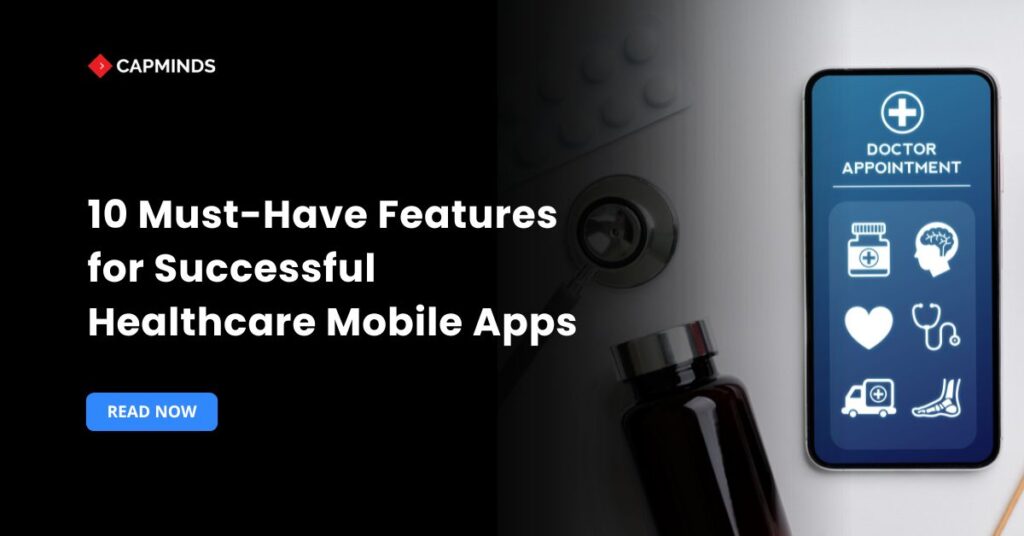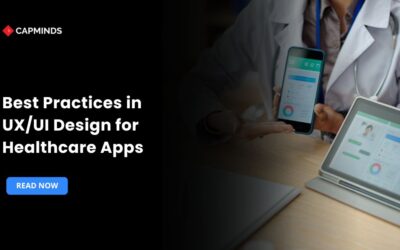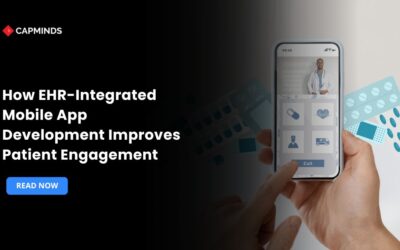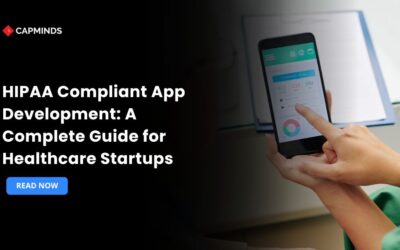10 Must-Have Features for Successful Healthcare Mobile Apps
The global mobile health (mHealth) apps market reached an estimated USD 36.68 billion in 2024 and is anticipated to expand to USD 40.65 billion by 2025, with a compound annual growth rate of 11.8%, before nearly doubling to USD 88.70 billion by 2032.
This rapid expansion highlights the rising importance of healthcare mobile app development services, as providers seek smarter, more connected, and more compliant platforms to meet modern patient demands.
What is a Healthcare Mobile Application?
A healthcare mobile application is a software program specifically created for smartphones and tablets. It provides healthcare-related services and information to providers and patients. These applications increase healthcare access, allow safe communication, and include a variety of health monitoring capabilities.
Must-Have Features of a Healthcare Mobile App
1. Engaging UI/UX Design
A user-friendly interface makes the healthcare apps easier to use and provides smooth navigation for patients. The interface should be basic and clear, with no complicated elements. It should be approachable to people of all age groups.
Features such as plain layouts, large buttons, tutorials can enhance the usability. Accessibility tools include voice navigation, screen readers and adjusting font sizing can help disabled patients. Tailored patients’ dashboards allow them to prioritize their needs, like upcoming appointments, health metrics.
2. Telehealth
Post-pandemic, people prefer to choose virtual consultations. Patients find it difficult to travel to the clinic, especially elderly people; a few may stick to tight schedules. Telehealth solves this problem through audio and video call consultations through a mHealth app.
It has features like screen recording or written summaries to improve post-consultation follow-ups. This enables healthcare professionals to discuss the treatment plans with the patients. Patients can get quick consultations without any delays.
3. Scheduling Appointments
Scheduling appointments can be challenging since there might be restricted availability. Patients can effortlessly schedule their appointments by reviewing providers’ availability and selecting a suitable time.
Automated notifications are dispatched through SMS and email to minimize no-shows. Incorporating personal calendars can facilitate the smooth scheduling of appointments
4. Prescription Management and Refills
Handling prescriptions can be straightforward and effortless with the appropriate app. Users can request medication refills or arrange deliveries via pharmacy integration. Patients can monitor their medications, see refill dates, and ask for renewals using their smartphones.
Advanced features may include missed doses and alert caretakers. Patients can scan barcodes of the medications to identify the drug names, dosage, and instructions.
5. Billing and Payments
Billing is often considered a time-consuming process. Healthcare apps should have integrated billing and payment options so the providers can easily access patients’ billing information, generate invoices, and receive payments. It reduces the administrative burden.
Based on treatments and services provided, the application automatically generates invoices. Payments can be tracked in real-time and pending balances. Integrating with insurance systems helps in streamlining the claim process.
Related: The 2025 Ultimate Guide to App Development for Healthcare
6. Symptoms Checker
The important features every healthcare mobile app must have. It allows users to know about their condition, and it provides the problem that the person is suffering from.
These features must involve experts from various departments so that the information can be accurate. Patients can quickly enter their symptoms and immediate assessments. It also provides home remedies, personalized recommendations.
7. Customizable Dashboards
Dashboards can be tailored according to the preference of the users. It shows the health key metrics, Patients can view their medication schedule or fitness goal. Dashboards include progress bars and graphs of their vital signs, lab reports to understand their health data.
The dashboard provides an overall view of patient health status. They can easily track upcoming appointments, lab results in real time.
8. Integrated EHR
Integrated EHR capability is the foundation of current healthcare mobile applications, allowing for consistent access to patient information, prescriptions, and clinical processes across devices and situations.
Apps that have comprehensive EHR integration break down data silos and guarantee that professionals and patients alike have authoritative, up-to-date information at their fingertips.
9. Wearable Device Integration
Most people started using wearable devices. It includes devices such as a blood pressure monitor, an oximeter, a fitness tracker, or blood sugar monitoring devices. A healthcare solution has a high chance of creating applications that are integrated with wearable devices.
Wearable devices collect patient information such as heart rate, pressure this so that providers can understand patients’ overall health.
10. Multi-Language Support
A healthcare solution should include multilingual features, as people may speak different languages. People may not understand the medical terms, but they can understand the terms in any one of the languages and provide a better user experience.
Real-time translation during virtual conversations can help patients and clinicians communicate in a language they understand.
Related: How AI & IoT Are Transforming Healthcare Apps (And How to Build One)
Healthcare Mobile App Development Solution from CapMinds
At CapMinds, we specialize in AI- and IoT-driven healthcare app development services that empower healthcare organizations to deliver connected, patient-centric care.
With CapMinds Healthcare App Development, healthcare providers can harness the power of cutting-edge technology to:
- Leverage AI-powered automation for predictive analytics, diagnostics, and workflow efficiency.
- Seamlessly integrate IoT to enable remote patient monitoring and real-time health tracking.
- Ensure interoperability by connecting with EHRs, patient portals, and telemedicine platforms.
- Enhance security and compliance with HIPAA-compliant infrastructure and data encryption.
- Deliver an intuitive user experience with a mobile-friendly, scalable app design tailored to your needs.
Why Choose CapMinds?
CapMinds eliminates the complexities of healthcare app development by offering:
- Pre-built frameworks that accelerate development while ensuring customization.
- Scalable cloud-based solutions for seamless expansion and adaptability.
- Expert-led consultation to align technology with your healthcare goals.
- Continuous support & maintenance to ensure optimal performance and security.
Build a better efficient health app with CapMinds. Contact us to discover how AI and IoT can transform your healthcare services and improve patient outcomes.




